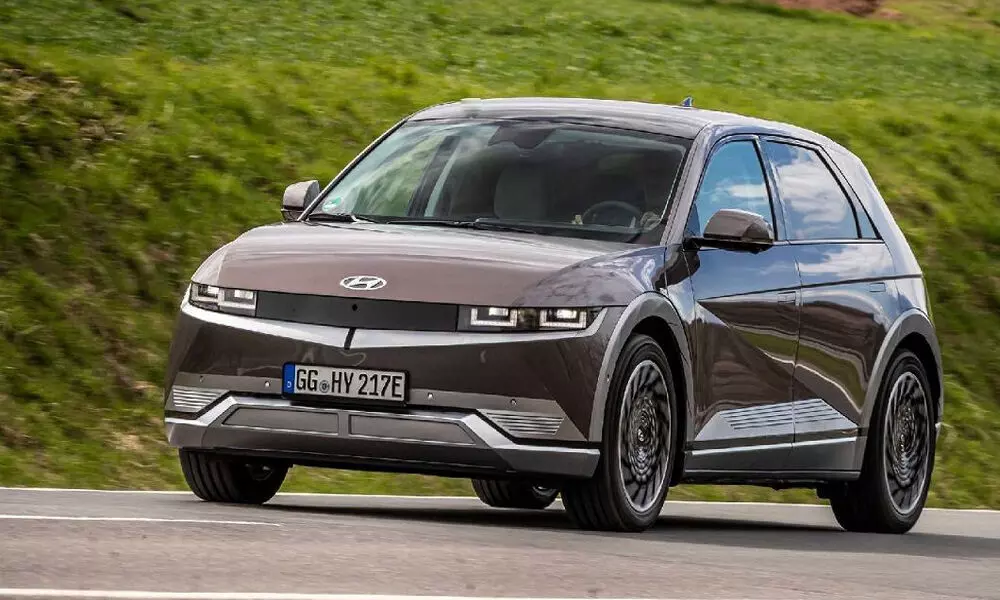Parts supply hits Hyundai plans of EV launch
image for illustrative purpose

Seoul South Korean automaker Hyundai Motor has debuted its all-electric Ioniq 5 in hope of catching up with EV leader Tesla, but its ambitious plan could fizzle out this year with delayed production and rapidly drying-up state subsidies, and more recently its labor union's opposition to its massive investment in the US.
Hyundai Motor has received about 43,000 preorders for the Ioniq 5 since Feb. 25 but just 114 units were delivered in the first month of its domestic launch in April, according to industry data.
The automaker planned to build 10,000 units last month, but it rolled out only 2,600 units as its Ulsan production line on the southeastern coast was suspended for a week in early April due to a lack of traction motors, an essential part for battery-powered vehicles, reports Yonhap news agency.
The parts supply issue came at a time when Hyundai and other automakers were forced to halt production earlier this year due to the global semiconductor shortage. Battery-powered vehicles require a far higher number of chips than the traditional combustion engine cars.
To reduce the waiting time, Hyundai is persuading customers to forgo some advanced features like a parking assist or rear-seat reminder system by offering a price discount and considering other options to retain customers who placed early orders, according to company officials.
"We are considering various options, including giving charging vouchers and other incentives, for customers who receive cars later than expected," a Hyundai Motor spokesperson said. "We cannot exactly predict when the Ioniq 5 can be delivered at this point due to uncertainty over the parts supply."
The slower-than-expected EV rollout raises concerns that latecomers may not be eligible for subsidies from the central and provincial governments allocated for this year.
The subsidy from the central government is 8 million won (US$7,200) for each buyer and subsidies from provincial governments reach up to 11 million won for each buyer.
Under the revised system that took effect this year, vehicles priced below 60 million won are eligible for 100 percent of the subsidies and those priced between 60 million won and 90 million won can get half of the subsidies. No incentive is available for cars whose sticker prices are over 90 million won.

